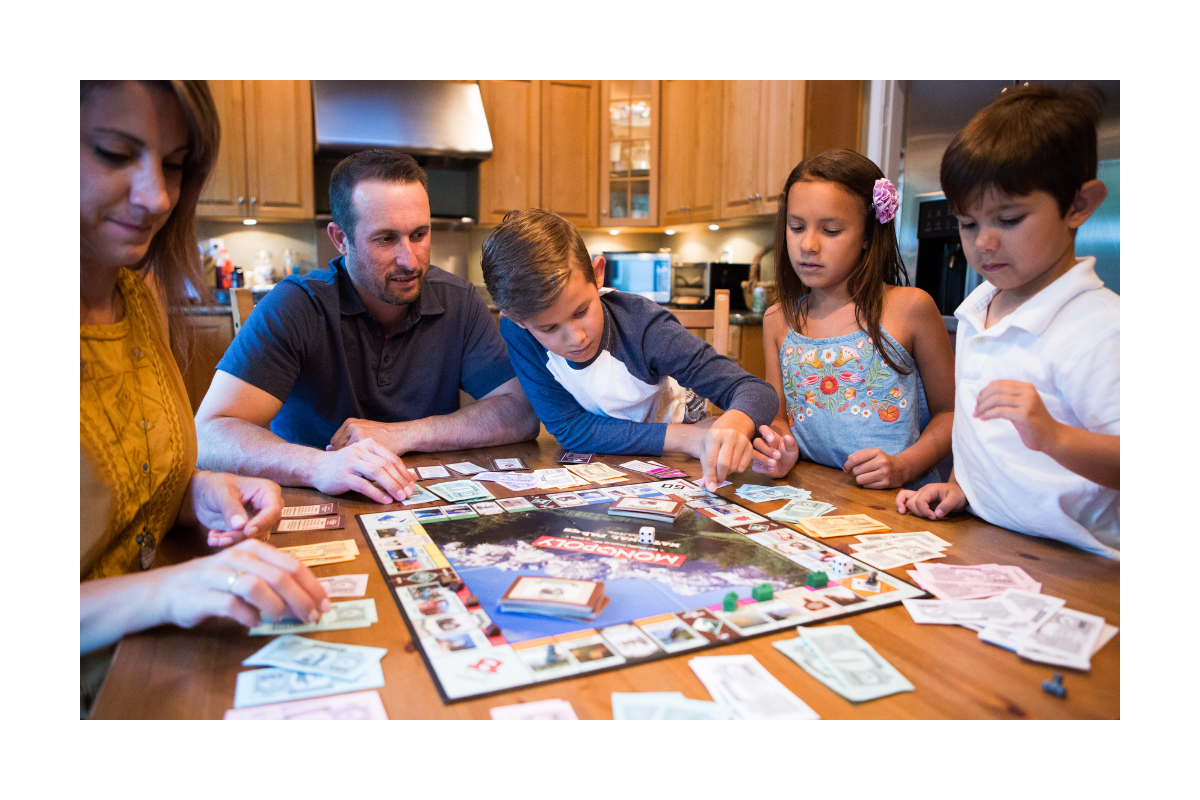We all know that most kids are fans of games – as well as many adults! When our kids go through preschool, we probably hear how they use play-based learning. This is how kids learn turn-taking, basic math skills, sentence structure, etc. However, for some reason, once children reach school age, the idea of “learning through play” kind of goes out the window. I truly believe that if you are helping your child learn, you can do this by playing games. Does that mean that it is always going to be sunshine and roses? Probably not. However, I think that there are ways we can make learning at home more enjoyable for everyone.
It is very easy for us to forget that children learn through play. Play is good for EVERYONE, not just our kids! When using games with our kids, it gives them the opportunity to learn new skills, revisit old ones, experience success and failure, etc. When learning something new or reviewing material, games seem less threatening to a child. Games don’t put a big red mark on a paper. Games don’t have several sets of eyes on you. When you play a game with your child, it is a safe space for learning.
Most games out there incorporate math in some form or fashion. Some games that are great for practicing math include: Yahtzee, Monopoly, Rummikub, Phase 10, Rack-O, and Quirkle. Not only do the games themselves work on math skills, but you can also have your child in charge of keeping score. You can check in with your child to see who is winning (comparing numbers) or how many more points someone may need to win the game (subtraction).
If you haven’t heard of some of these games, here is some info about a few of them. Rummikub is a fast-moving game for kids that reinforce sequencing and patterns. Rack-O is a game where players race to be the first to get all of their cards in sequential order. Quirkle is a game that will allow kids to practice spatial recognition and problem-solving skills. This sounds like more fun than filling out some worksheets with my child.
Most games that you play will incorporate reading. Here a few fun games to try to sharpen your child’s reading skills: Mad-Libs, Tall Tales: The Game of Infinite Storytelling, Scrabble, Boggle, Headbanz, and Apples to Apples Junior. Additionally, you can have your children take turns reading the game instructions.
Play can change the dynamics of learning at home. Many times students may not put forth their best effort with mom and dad. However, if it is turned into a game, competitiveness and good effort may come out!
What are some of your favorite games to play with your family?




